Explore the latest self-driving cars of 2024, including the Tesla Model S and Waymo’s Jaguar I-PACE, featuring cutting-edge technology and safety.
Table of Contents
Latest Self-Driving Cars with Latest Features: Introduction
Hey there, car enthusiasts! If you’ve been keeping an eye on the automotive industry, you’ve probably noticed that self-driving cars are no longer just a futuristic dream—they’re becoming a reality. With rapid advancements in technology, manufacturers are rolling out vehicles equipped with features that make driving safer, easier, and more enjoyable. But what exactly can we expect from the latest models? In this article, we’ll dive deep into the latest self-driving cars, their features, prices, and performance across various brands.
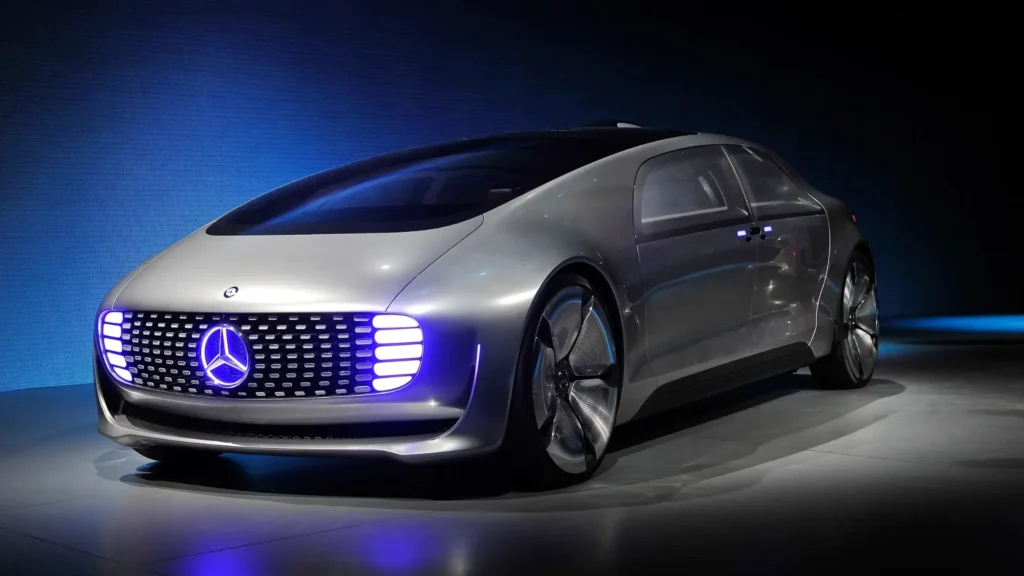
What are Self-Driving Cars?
Self-driving cars, or autonomous vehicles, use a combination of sensors, cameras, and AI to navigate and operate without human intervention. Imagine a car that can take you to work while you sip your coffee and check your emails—that’s the magic of self-driving technology!
Levels of Automation
The Society of Automotive Engineers (SAE) defines six levels of driving automation, ranging from Level 0 (no automation) to Level 5 (full automation). The most commonly discussed vehicles today usually fall between Level 2 (partial automation) and Level 4 (high automation).
Top Brands and Models
Now, let’s look at some of the hottest self-driving cars hitting the market in 2024.
Tesla Model S
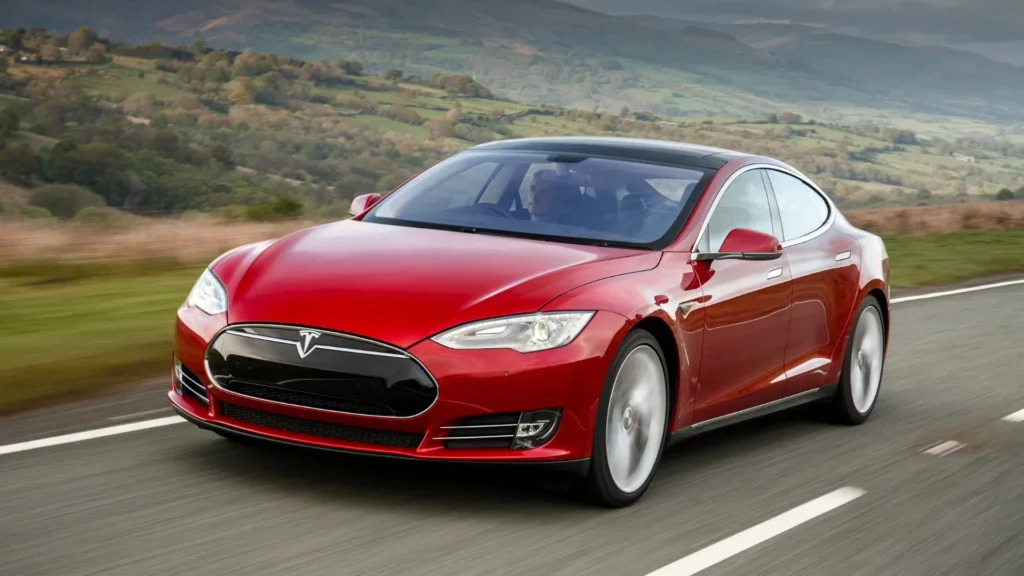
- Price: The Tesla Model S starts at around £90,000, but with various upgrades, it can soar to over £100,000.
- Performance: This beast can go from 0 to 60 mph in just 2.4 seconds, thanks to its dual-motor all-wheel drive. The Model S boasts a range of up to 396 miles on a single charge, making it perfect for long drives.
Waymo’s Jaguar I-PACE
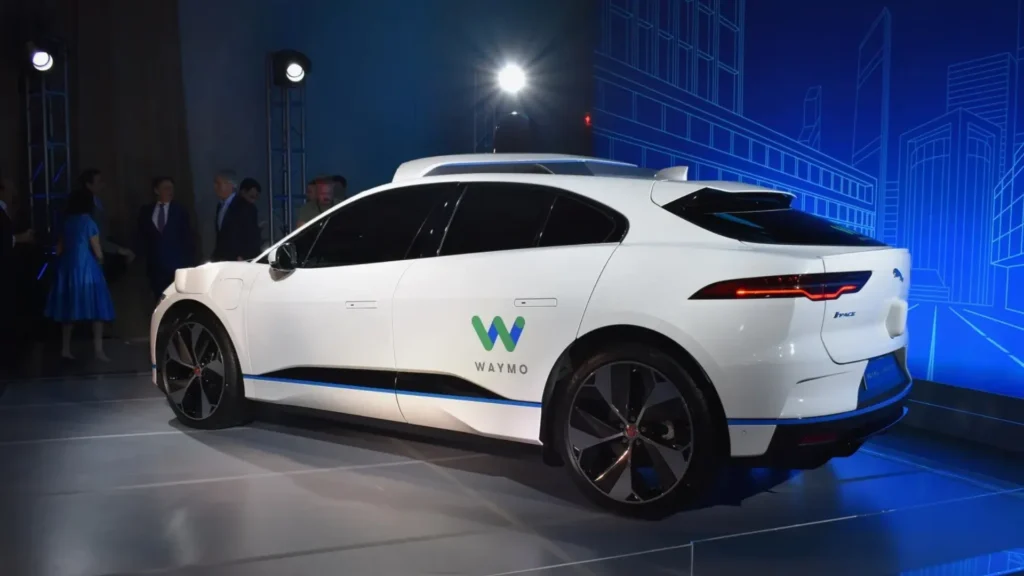
- Price: Waymo’s autonomous version of the Jaguar I-PACE is priced at approximately £75,000.
- Performance: This electric SUV features advanced self-driving technology, allowing it to navigate city streets and highways seamlessly. It has a range of around 292 miles and can accelerate from 0 to 60 mph in just 4.5 seconds.
Cruise Origin
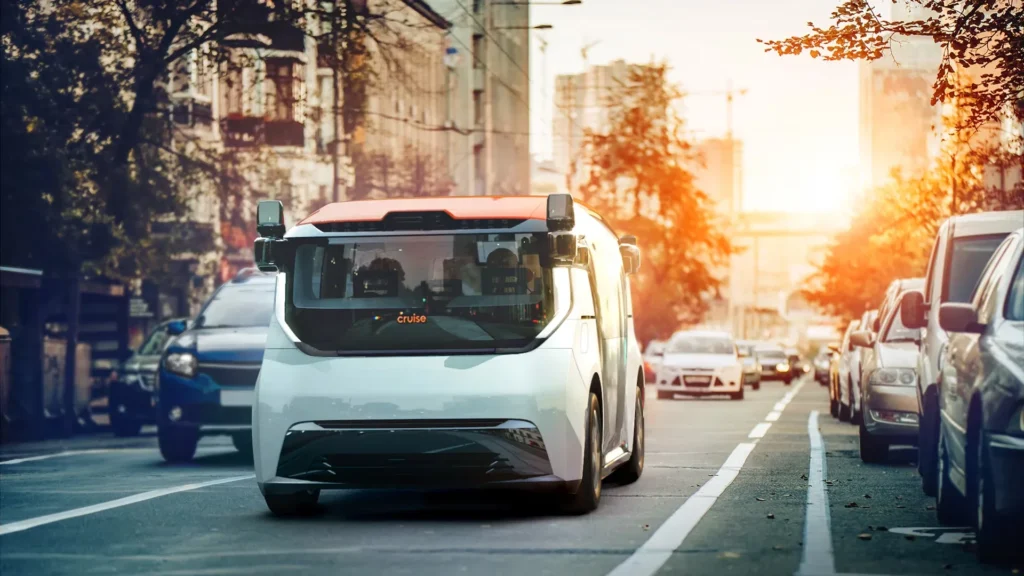
- Price: The Cruise Origin, designed for ride-sharing, is expected to be priced around £50,000.
- Performance: Unlike traditional cars, the Origin is built from the ground up as a self-driving vehicle. With a top speed of 120 mph and a range of 250 miles, it’s engineered for both comfort and efficiency.
Nuro R2
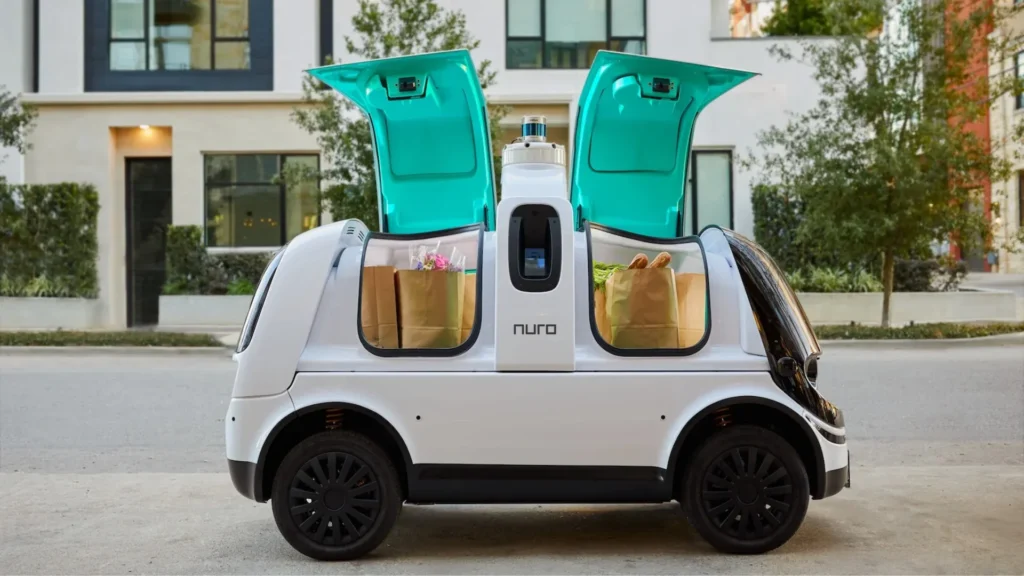
- Price: The Nuro R2 is a bit different as it’s designed for delivery services, priced around £10,000.
- Performance: This small, autonomous vehicle is designed to carry goods rather than passengers. It has a top speed of 25 mph and is perfect for short-distance deliveries, operating efficiently within urban settings.
Latest Features in Self-Driving Cars
So, what makes these self-driving cars so special? Let’s break down some of the latest features.
Advanced Sensors
Modern self-driving cars are equipped with a range of sensors—radar, lidar, and cameras—that help them perceive their surroundings. This is like giving the car a set of eyes and ears, allowing it to detect obstacles, pedestrians, and other vehicles on the road.
Artificial Intelligence
AI is at the core of self-driving technology. It processes data from the sensors to make split-second decisions. Picture this: you’re cruising down the highway, and suddenly a deer jumps onto the road. The car’s AI can instantly calculate the best course of action to avoid a collision.
Connectivity and Software Updates
The latest models are connected to the internet, enabling over-the-air software updates. This means your car can improve over time, much like your smartphone! Imagine getting new features or enhancements without ever stepping foot in a dealership.
The Future of Self-Driving Cars
The future looks bright for self-driving cars. With ongoing research and development, we can expect enhanced safety features, better battery technology, and even more seamless integration with smart city infrastructure. As more companies invest in autonomous technology, the dream of fully self-driving cars might just become a reality in the next decade.
Official Link: Autopilot | Tesla
Conclusion
In conclusion, the world of self-driving cars is evolving rapidly, offering innovative features that are set to redefine our driving experience. From Tesla’s lightning-fast performance to Waymo’s intelligent navigation systems, there’s something for everyone in the self-driving car market. As technology continues to advance, who knows what the future holds? We may soon find ourselves in a world where human driving is a thing of the past!
FAQs
What is the average price of self-driving cars?
The prices can range widely, with some models like the Tesla Model S starting at around £90,000, while delivery-focused vehicles like the Nuro R2 can cost around £10,000.
Are self-driving cars safe?
While no technology is infallible, self-driving cars are designed to reduce human error, which is a leading cause of accidents. Their advanced sensors and AI aim to enhance safety on the roads.
How do self-driving cars work?
They use a combination of sensors, cameras, and artificial intelligence to navigate and make decisions in real-time, allowing them to operate without human intervention.
Will self-driving cars be available for everyone?
Eventually, as technology advances and becomes more cost-effective, self-driving cars are expected to be accessible to a broader audience, not just luxury buyers.
What is the future of self-driving cars?
The future is promising, with ongoing advancements in safety features, battery technology, and smart city integration, leading to a possible era of fully autonomous vehicles.
How long until self-driving cars are widely available?
While some models are already available, widespread adoption may take several years as technology, regulations, and public acceptance continue to evolve.
Can self-driving cars operate in all weather conditions?
Most self-driving cars are designed to handle various weather conditions, but heavy rain, snow, or fog can still pose challenges for their sensors.
Will self-driving cars reduce traffic congestion?
Yes, many experts believe that self-driving cars could reduce traffic congestion through better traffic management and more efficient driving patterns.
How do self-driving cars communicate with each other?
Self-driving cars can use Vehicle-to-Vehicle (V2V) communication technology to share information about their speed, direction, and location, helping to improve safety and traffic flow.
Are self-driving cars environmentally friendly?
Many self-driving cars are electric or hybrid vehicles, which can reduce emissions. However, their overall environmental impact will depend on how they are integrated into transportation systems.